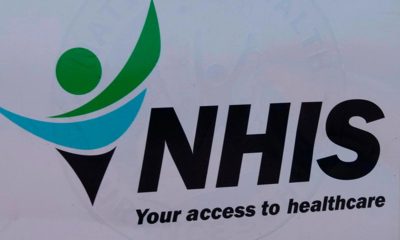Insurance
Health Insurance For Expats in Singapore – Requirements & Options

Singapore ranks high in all areas of development, including social security, health, the economy, and general citizen contentment. Furthermore, the job opportunities make it very appealing to expats.
However, before you make the decision to relocate to Singapore, you must first grasp how the healthcare system works, how to obtain health insurance, and where you fit in as a foreigner.
How Does Singapore’s Healthcare System Work?
The government closely supervises Singapore’s healthcare system, and most people receive care in public institutions. Private healthcare largely supports the national system. Healthcare and insurance are based on the “three Ms”—Medisave, Medishield Life, and Medifund.
Citizens and permanent residents must contribute to Medisave, one of the three Ms of healthcare finance. Employees and employers contribute to Singapore’s Central Provident Fund (CPF) for the three Ms.
Medisave and Medishield are only for permanent residents. Since permanent residency in Singapore is difficult, most expatriates cannot get public insurance.
Medisave
- Medisave is a mandatory health-savings plan administered by the Central Provident Fund (CPF). All Singapore citizens and permanent residents are expected to contribute to Medisave on a monthly basis. They can use the Medisave account to pay for specific medical treatments and services in exchange. Please keep in mind that the account is also intended to be used to cover medical expenses after retirement.
- A specific % of income (varying on salary and age) is automatically deducted into the Medisave account managed by CPF Board. Currently, the contribution rate is capped at 37% shared between employer and employee.
- Automatic enrollment for citizens and permanent residents who start working and earning an income.
- All citizens and permanent residents working and earning an income and self-employed individuals must contribute.
- Usage Pay for approved medical expenses, including hospitalization, day surgery, outpatient treatments, health screening tests, nursing home care, and home hospice care.
Medishield
- Medishield Life is a mandated life insurance plan for severe healthcare expenditures that Medisave cannot cover. Enrollment in Medishield is prohibited after 75. This scheme, like Medisave, is for citizens and permanent residents only.
- Medishield premiums range from $150 (under 20) to $1,200 (over 70). Medisave completely covers Medishield premiums annually. Government-approved private insurance carriers offer additional coverage. Integrated Shield Plan insurers can be found here, along with a list and plan comparison.
Medifund
Medifund is a health financing scheme set out by the Singaporean government to help low-income individuals with medical expenses. Medifund is used when Medisave and Medishield Life and government subsidies cannot cover the medical expenses of certain specific individuals.
You qualify for Medifund if:
- You are a Singaporean citizen.
- You are a subsidised patient.
- You have received care or treatment from a Medifund-approved institution.
- You cannot pay your medical expenses after using government subsidies, Medisave and Medishield Life.
Do I Need Health Insurance in Singapore?
Whether you need health insurance in Singapore depends on your immigration status:
- If you are a permanent resident— you are legally required to join Medisave and Medishield.
- If you hold a work permit or an S pass visa— your employer must provide health insurance coverage with a minimum amount of $15,000 per year (as of 2023).
- If you are a temporary resident with an Employment Pass— you are not required to obtain your insurance, but you are highly recommended.
Do Expats Qualify for Public Health Insurance?
Not all expats in Singapore are qualified for public health insurance. All other foreigners can get private health insurance (international or local).
If you don’t have public insurance, you can still get care in public facilities; you just have to pay for it yourself or buy private insurance. Consult your provider about visiting a public facility that accepts private insurance.
How Can Expats Get Health Insurance in Singapore?
Expats not eligible for Medisave and Medishield Life can purchase private health insurance by considering one of the following options:
- Purchase local private health insurance.
- Purchase an expat health insurance plan.
- Use employment-based insurance.
Purchase Local Private Health Insurance
Regarding private insurance in Singapore, you can opt for a local insurance provider, as plenty of reputable companies cater to expats. The only downside is that local insurance usually only covers you while you are in Singapore.
Here are some of the best local health insurance companies for expats in Singapore:
- AIA Singapore.
- Sing Life.
- HSBC Life.
- Great Eastern.
- Income.
- Prudential.
- Raffles Health Insurance.
Please note that these are all government-approved health insurance providers, which are also eligible to provide citizens and permanent residents with additional benefits for their Medishield coverage.
Purchase an International Health Insurance Plan
Another great option for expats in Singapore is international health insurance from global providers. The greatest benefit of an international health insurance plan is that these providers are experts in expat insurance and can offer you coverage in other parts of the world outside of Singapore.
Some of the best international health insurance companies for expats in Singapore include:
- Axa.
- Allianz Care.
- Aetna International.
- IMG.
In addition to these options, consider exploring Insubuy for personalized insurance plans tailored to your needs. With expertise in international health insurance, Insubuy offers comprehensive coverage and reliable support for expats in Singapore and beyond. Make sure to contact them for a free quote!
Use Employment-Based Insurance
Employment-based insurance is insurance that your employer provides you with while you are working in Singapore. Most employers are not legally required to provide insurance for their workers, but most do.
However, as mentioned above, if you hold a work permit or an S pass visa, in that case, your employer is legally required to provide you with health insurance.
Please note that if you are satisfied with your employer’s health insurance plan, you can opt out of purchasing an additional one.
Public VS Private Health Insurance
Private Health Insurance
- Purchased by individuals or provided by employers to cover medical expenses in private hospitals and clinics.
- All citizens and foreigners.
- Coverage options can vary widely based on the policy chosen. Generally, private insurance covers a broader range of medical services, including elective procedures and specialist care.
- Cost Premiums vary depending on the extent of coverage and the individual’s health status.
- Patients can access a wider range of private hospitals and clinics, including those outside of Singapore.
Generally shorter waiting times for appointments, tests, and procedures due to the availability of private healthcare facilities. - Private insurance policies may include additional benefits, such as wellness programs, preventative care, and dental and vision coverage
Public Health Insurance
- Provided by the government to all Singapore citizens and Permanent Residents (PRs).
- Only citizens and holders of permanent resident cards.
- Covers basic medical services, such as hospitalization, surgeries, and outpatient treatments.
- Affordable premiums, with subsidies and additional coverage options available. Social contributions pay premiums.
- Patients can access government-funded hospitals and clinics, including public hospitals and polyclinics.
- Longer waiting times for appointments, tests, and procedures, particularly for and non-emergency treatments.
- Additional coverage options are available for permanent residents and Singapore citizens, including Medisave and Medishield Life, which offer coverage for chronic conditions and long-term care
How Much Does Health Insurance Cost for Expats in Singapore?
A basic health insurance plan for one person can go between $50 to $100, but comprehensive plans can go up to $700 or even more. It’s important to note that average prices for expat insurance vary depending on several factors:
- Age – Older individuals may face higher premiums as they are statistically more likely to require medical treatment.
- Health status – Pre-existing medical conditions may lead to higher premiums or exclusions from coverage for related medical conditions.
- Coverage limits – Higher coverage limits or more comprehensive coverage options can lead to higher premiums.
- Type of plan – The type of plan chosen, such as basic vs. premium, can affect the cost.
- Insurance provider – Different insurance providers may offer different premiums for similar coverage, so shopping around and comparing options is important.
- Geographic location – The cost of healthcare can vary depending on the location of the insured individual, with premiums potentially higher in areas with more expensive medical facilities.
- Additional benefits – Additional benefits such as maternity or dental and vision coverage can increase premiums.
If qualified, you pay a portion of your income to Medisave. The maximum contribution rate in 2023 is 37%, with your employer paying 17% and you 20%. Age and earnings affect the rate. Age-specific rates are here. Medisave also covers Medishield premiums.
Insubuy, a trusted online health insurance marketplace, offers affordable Singapore expat health insurance products. Insubuy lets you compare leading insurance policies to discover the right coverage for your needs and budget. Insubuy also offers plan customization and discounts to lower rates.
What Does Health Insurance Cover for Expats in Singapore?
Expat Health Insurance covers the following:
- Hospitalization
- Inpatient psychiatric treatment (Not with a basic plan)
- Chemotherapy
- Radiotherapy
- Dialysis
- Selected outpatient treatments (e.g., cancer treatments)
- Outpatient treatments
- Elective procedures
- Specialist care
- Emergency transportation and repatriation
Please note that the above is not exhaustive. You should contact a healthcare professional in Singapore to better understand the coverage options available to you as an expat.
Can I Use My Home Country’s Health Insurance in Singapore?
This depends on your provider back home and insurance plan; however, in most cases, domestic plans do not cover you internationally. You should carefully check with your provider before departing for Singapore.
How Do I Choose Between a Local and International Health Insurance Plan?
Whether you opt for a local or an international insurance plan depends on your price range, what criteria you have for your health insurance and many other factors.
Here is a list of pros and cons to help you make a decision:
Local Health Insurance
Advantages:
- Generally, more affordable premiums
- May offer more extensive coverage for local medical services
- May have better relationships with local healthcare providers
Disadvantages:
- May not offer coverage for pre-existing conditions
- May have limited flexibility in plan options
- May have limited coverage outside of Singapore
International Health Insurance
Advantages:
- Offers coverage in multiple countries
- May offer more flexibility and customizable options
- Can offer access to high-quality healthcare providers and services globally
Disadvantages:
- Generally, more expensive premiums
- May have limited relationships with local healthcare providers
- May have limited coverage for local medical services
Are Pre-Existing Conditions Covered by Health Insurance Plans in Singapore?
Medishield and Medisave offer coverage for pre-existing conditions, but private expat insurance plans usually do not.
If you are not eligible for Medishield and Medisave, you can customize your expat insurance plan to cover pre-existing conditions, which may cost more.
How Do I Find an English-Speaking Doctor in Singapore?
Because English is one of Singapore’s official languages, you should have no trouble locating an English-speaking doctor or healthcare practitioner. You can use the Ministry of Health’s research tool to help you discover a practitioner.
How Do I Handle Medical Emergencies in Singapore?
If you are in Singapore and have a medical emergency, dial 995—this number is intended for life-threatening situations. To minimize overcrowding in emergency services, phone 1777 if you have a non-urgent medical concern, such as toothaches, diarrhea, coughs, or headaches.






















